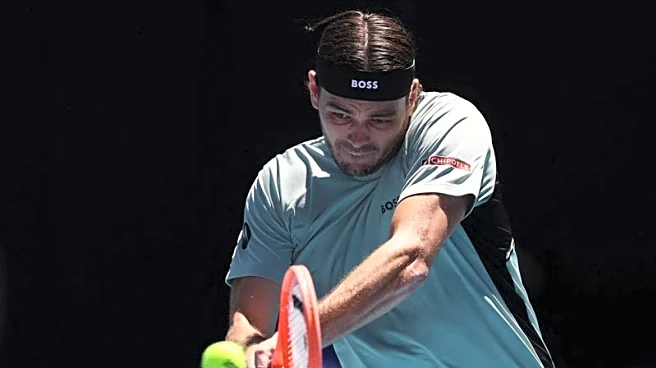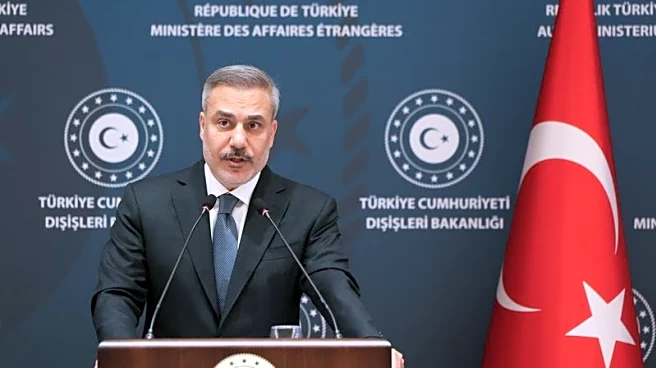What is the story about?
What's Happening?
Franco Colapinto's position with Alpine in Formula 1 remains secure despite a challenging season. Alpine has decided to stick with the Argentine driver, who has struggled to score points in the 2025 season. Colapinto, initially seen as a promising talent, has faced difficulties since joining Alpine, including a significant crash during a qualifying session in Las Vegas. Despite these setbacks, Alpine has opted to retain Colapinto, providing him with the opportunity to improve his performance in the second half of the season. This decision comes amidst Alpine's broader driver challenges, as they seek to find a reliable partner for Pierre Gasly, who has been the sole point scorer for the team.
Why It's Important?
Alpine's decision to continue with Franco Colapinto highlights the team's commitment to nurturing talent despite immediate performance issues. This approach contrasts with the trend of quick driver changes seen in other teams, such as Red Bull. By providing Colapinto with more time to adjust, Alpine aims to unlock his potential, which could lead to improved results and stability for the team. The decision also reflects the financial and sponsorship benefits Colapinto brings, particularly from Latin American sponsors. This move could influence other teams to reconsider their strategies regarding driver development and patience.
What's Next?
As the season progresses, Colapinto will have the chance to demonstrate his capabilities and regain confidence. Alpine will closely monitor his performance, especially in familiar circuits, to decide on future driver arrangements. If Colapinto fails to improve, Alpine may consider other options, such as promoting reserve driver Paul Aron or revisiting Jack Doohan's potential. The team's patience with Colapinto will be tested, and his performance in the upcoming races will be crucial in determining his future with Alpine.
Beyond the Headlines
Alpine's decision to stick with Colapinto may have broader implications for driver management in Formula 1. It challenges the norm of rapid driver turnover and emphasizes the importance of psychological support and long-term development. This approach could lead to a shift in how teams evaluate and support drivers, potentially fostering a more stable and nurturing environment in the sport.















